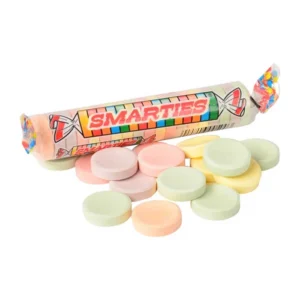Sometimes, a company benefits from diversification.
Apple began selling computers but expanded into consumer electronics with the iPod, then the iPhone, iPad, Apple Watch, and services like iTunes, App Store, and Apple Music.
Amazon began as an online bookstore but expanded into e-commerce across multiple categories: Cloud computing (Amazon Web Services), entertainment (Prime Video, Amazon Studios), devices (Kindle, Alexa), and groceries (Whole Foods acquisition).
Then there are the stranger ones:
Wrigley was a soap company that began giving away chewing gum as a freebie with purchases. The gum became more popular than the soap, eventually transforming from a soap company to a gum company.
Samsung was established in 1938 as a company that deals with noodles and dried fish. It entered electronics in the 1960s, eventually pivoting entirely to become a leader in tech, semiconductors, and home appliances.
Tiffany was originally a stationery store in 1837. About 20 years later, it diversified into jewelry and eventually exited the stationery business entirely.
Dupont first sold gunpowder but later added chemicals and materials like nylon, Teflon, and Kevlar, eventually shuttering the gunpowder business for good.
Then, there are companies like Yamaha, which continues to produce musical instruments and motorcycles.
3M, which sells Post-it notes alongside medical devices, safety gear, and thousands of other industrial products.
Samsung, which builds smartphones and container ships.
Virgin, which operates in the music and spaceship business.
Then there are the companies that make one thing and have never deviated:
The Smarties Candy Company was founded in 1949 by Edward Dee, who repurposed a World War II pellet machine designed to make medicine tablets to create Smarties candies instead.
The company — currently led by Dee’s granddaughters and co-presidents Sarah Dee, Jessica Dee Sawyer, and Liz Dee — has deliberately produced one thing and one thing only over the last 75 years:
Smarties.
While it might have been easy to diversify into other candies (or spaceships), Smarties has remained faithful to its one product. Its two plants run 24 hours a day, five days a week, cranking out more than two billion candy rolls annually, barely keeping up with demand.
Sales are up, and the company is poised to post record profits again this year.
Sometimes, it pays to specialize in one thing.
Smarties were also far ahead of their time, beginning and remaining vegan, gluten-free, and allergen-free long before those three terms and ideas even existed.
Also, thanks to its dry, compact nature and exceptionally long shelf life, Smarties are often included in emergency preparedness kits. In a zombie apocalypse, Smarties might just save your life.
I had no idea this seemingly ancient, chalky candy had such an illustrious history and was doing so well.
They really are a smart candy after all.









